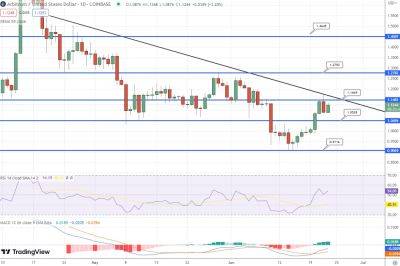Here are ways retirees can protect nest eggs during a stock market rout
The federal debt-ceiling standoff and the specter of a possible recession on the horizon may mean turbulent times ahead for the stock market — and that's especially worrisome for retirees who rely on their investment portfolios for income.
Retirees are generally advised to hold some stocks as part of their nest egg. Stocks serve as a long-term growth engine, helping to beat inflation's negative impact over decades of retirement in a way that cash and bonds generally can't.
But pulling too much money from stocks during periods of sustained losses can be dangerous for retirees. The risk is particularly acute for people who've recently retired.
More from Personal Finance: Credit card debt nears $1 trillion How to get started with investing, budgeting How much emergency savings you really need
Fortunately, there are ways retirees can cut that risk.
«You really have two defenses if you're retired and are pulling from your portfolio for your living expenses,» said Christine Benz, director of personal finance and retirement planning at Morningstar.
One of those defenses is changing the source of withdrawals — for example, pulling from cash or bonds instead of stocks. Ideally, retirees would pull from an asset type that hasn't been declining in value, Benz said.
That's sometimes a tough proposition: 2022 was a rare case when stocks and bonds both suffered steep losses.
The second defense is to reduce the overall dollar amount retirees withdraw from their investments, Benz said.
Here's the crux of the issue: When the stock market pulls back, investors must sell more of their stocks to generate the same level of income. When the market eventually stabilizes and swings positive, the portfolio has less of a runway for growth.
If
Read more on cnbc.com

 cnbc.com
cnbc.com




















